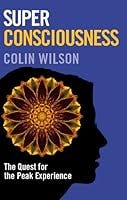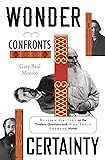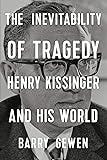But also remember this: Beijing’s leadership fears its own citizens more than us. Chinese history is full of “bad emperors” succumbing to palace coups, internal rebellions, and civil wars. Global security ensures national security, which in turn secures Party rule—a one-way street.
Beijing, keen to present itself as law-abiding, nonetheless sits atop several thousand years of historic expansionism along its borders. In this never-ending endeavor, China has mastered what the West has dubbed “salami slicing” tactics (in Chinese, nibbling like a silkworm), wherein soft-and hard-power schemes combine to incrementally advance their lines of control in an unstoppable sovereign “velocity” not unlike climate change’s creeping advance.
China observers have taken to describing Beijing’s social credit scoring system as Mao Zedong’s Cultural Revolution digitalized, which makes Beijing’s aggressive pursuit of society-pacifying gamification systems an even greater threat to a world well conditioned and incentivized for their pervasive application.
Essays in Understanding, 1930-1954
What I learned from you and what helped me in the ensuing years to find my way around in reality without selling my soul to it the way people in earlier times sold their souls to the devil is that the only thing of importance is not philosophies but the truth, that one has to live and think in the open and not in one’s own little shell, no matter how comfortably furnished it is, and that necessity in whatever form is only a will-o’-the-wisp that tries to lure us into playing a role instead of attempting to be a human being.
Encyclical on Climate Change and Inequality
Today . . . we have to realize that a true ecological approach always becomes a social approach; it must integrate questions of justice in debates on the environment, so as to hear both the cry of the earth and the cry of the poor.
Dostoevsky never forgot that 'crisis vision' – the recognition that the world is an incredibly beautiful place, and that we are prevented from seeing this mainly by laziness, negativity and force of habit.
This was a matter that particularly concerned William James. ‘The intellectual life of man’, he wrote ‘consists almost wholly in his substituting a conceptual order for the perceptual order in which his experience originally comes.’
Historians have pointed out that, far from responding to oppositional activities, Bolshevik violence, which began before there was any active opposition, fostered them. If anything, it made holding on to power more difficult. But to argue this way, as westerners naturally do, is to presume that cruelty requires justification. On the contrary, for Lenin, Stalin, Trotsky, Bukharin, and their Bolshevik followers, it was “leniency” and “softheartedness” that were questionable. Unless one grasps the point that cruelty was the default position, one cannot understand Soviet decisionmaking.
Over time, [Hitler] developed the full vocabulary of the rhetorician’s art—voice, inflection, timing. His speeches were structured to build to carefully controlled crescendos. They were by turn emotional and combative and sentimental and ironic and assured and sarcastic and, yes, humorous. Hitler was quick-witted, able to deal handily with hecklers, of whom there were many in the early years.
According to the eminent Swiss biologist and philosopher of nature Adolf Portmann, self-presentation (Selbst-Darstellung) for animal life is as primary as self-preservation.













